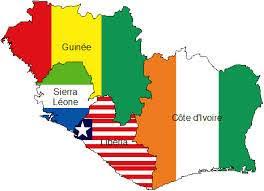The Economic and Financial Crimes Commission (EFCC) is Nigeria’s foremost agency for combating economic crimes, including financial fraud and corruption. The EFCC was established in 2003 to address the growing problem of economic and financial crimes in Nigeria. Over the years, it has been involved in high-profile cases, recovering billions in stolen funds and prosecuting many individuals for financial crimes. However, questions about the agency’s commitment to equitable enforcement persist despite these successes. The perceived bias over the methods deployed by the EFCC while apprehending private individuals, often resulting in violation of human rights, over government officials and politicians has raised significant concerns about the agency’s fairness and effectiveness.
The Economic and Financial Crimes Commission (EFCC) has faced criticism of the methods deployed in the arrest and parade of private individuals. Private individuals are frequently subject to forceful arrests with little regard for due process. There have been instances where the EFCC has conducted early-morning raids on academic institutions and private homes without proper warrants, arresting individuals based on minimal evidence, an act deemed illegal by Nigerian courts. This aggressive approach can be seen as a violation of fundamental human rights and raises concerns about the legality of such operations. Once arrested, private individuals are often paraded in front of the media, with the EFCC showcasing them as alleged criminals without formal charges being laid. This practice of “parading” suspects can have severe consequences for those involved, tarnishing their reputations and causing irreversible damage to their personal and professional lives. The EFCC’s willingness to parade private individuals while they are still under investigation or awaiting trial contrasts sharply with the more discreet handling of cases involving politicians. The public display of suspects creates a perception of guilt before any court proceedings, undermining the principle of ‘innocent until proven guilty’.
In contrast, the EFCC appears to take a more reserved approach when handling cases involving politicians. Politicians often benefit from significant legal protections and political influence, which can deter the EFCC from conducting forceful arrests. The agency follows a more formal process with politicians, ensuring proper warrants are issued and respecting their legal rights. This discrepancy in treatment indicates a double standard in the EFCC’s approach to enforcement, leading to public scepticism about the agency’s impartiality. The unequal treatment of private individuals and politicians can erode public trust in the EFCC’s commitment to justice. This implies that power and influence can protect specific individuals from the harsh treatment others endure. This does not suggest politicians should be subjected to the same harsh treatment as private individuals. Instead, it emphasises that everyone should be granted civil and human rights regardless of status.
Conversely, cases involving politicians and high-profile government officials tend to be highly complex, involving intricate corruption networks, offshore accounts, and sophisticated money-laundering schemes. Investigating these matters is resource-intensive and requires specialised skills, often leading to prolonged investigations and the risk of tampered evidence. Prosecuting high-level officials also poses challenges, requiring a solid legal strategy to navigate Nigeria’s complex judicial system. These cases attract significant public scrutiny, with high-ranking officials leveraging top-tier legal representation to exploit legal technicalities and delays. As a result, the EFCC might be less inclined to pursue these cases aggressively, focusing on targets with less political resistance and a higher probability of success.
However, the EFCC’s perceived bias in targeting private individuals more aggressively than government officials has severe implications for Nigeria’s fight against corruption. When citizens see high-ranking officials or influential politicians evading accountability, it undermines the concept of justice, leading to widespread disillusionment with government institutions and fuelling a growing sense of injustice. This erosion of trust can make it increasingly difficult for the EFCC to garner public support for its anti-corruption efforts, hindering broader attempts to build a culture of accountability. The ripple effects of this perception can foster an environment where corruption and unethical behaviour are normalised, as those in power believe they are immune from legal consequences. This, in turn, can create a culture of impunity, where corruption becomes deeply embedded in public institutions, deterring honest individuals from pursuing careers in public service.
The EFCC must take proactive steps to demonstrate its commitment to impartial justice to address these concerns and restore public confidence in the anti-corruption system. Strengthening the agency’s independence is crucial to ensure it can investigate and prosecute cases without interference from powerful interests. This might require legal reforms to give the EFCC greater autonomy and protection from political retribution. Increasing the agency’s resources is also vital, allowing it to tackle complex cases involving high-ranking officials. By providing specialised training and fostering partnerships with other anti-corruption entities within Nigeria and internationally, the EFCC can build a more robust framework for combating high-level corruption.
Additionally, in October 2023, the EFCC updated its protocols for the arrest, bail, and processing of suspects. The new guidelines strongly emphasise respecting the rights of suspects, particularly regarding arrest procedures, detention, and bail conditions. To bolster this, the EFCC should prioritise staff training programs that emphasise the proper legal treatment of all suspects. The agency must maintain consistent and equitable enforcement practices across all cases. The EFCC must ensure that its operations are free from human rights violations and that all individuals are treated with dignity and by the law. This commitment to lawful conduct is crucial to restoring public trust and upholding the principles of justice and fairness. If implemented effectively, the agency can work toward demonstrating that no one is above the law, re-establishing public trust, and reinforcing Nigeria’s commitment to accountability and justice.
The Economic and Financial Crimes Commission (EFCC) stands at the forefront of Nigeria’s battle against economic and financial crimes. Yet, its seemingly uneven approach to enforcement has cast doubt on its commitment to justice. By treating private individuals differently from politicians and high-profile government officials, the EFCC risks losing public trust and credibility. To restore faith in its mission, the EFCC must adopt a strategy that includes bolstering its independence, expanding its resources, and playing by the rules of the law. This comprehensive shift is crucial for Nigeria to make tangible strides in its fight against corruption and to foster a society where accountability and justice are not just ideals but realities.



